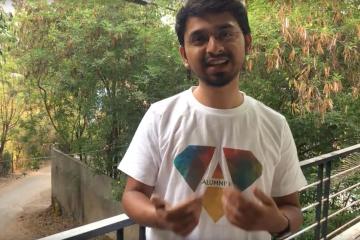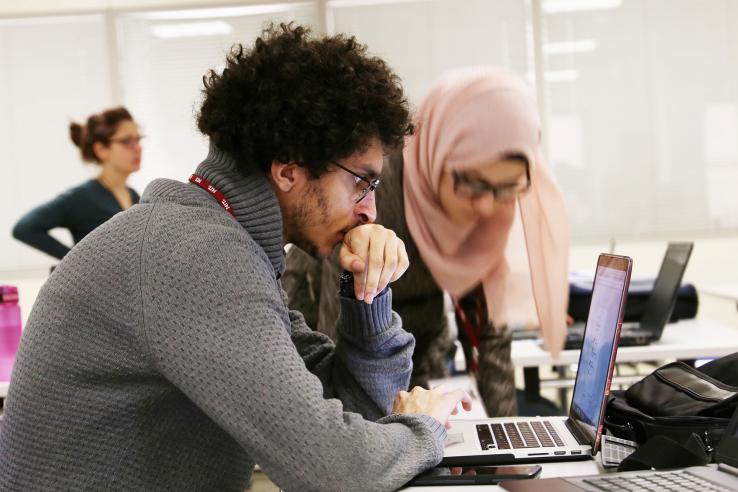
Expanding access to higher education for refugees

The MicroMasters team at J-PAL recently announced a new collaboration with ReACT Hub, an MIT initiative that designs and deploys new learning opportunities for displaced populations.
Starting in the summer of 2018, ReACT will sponsor a cohort of refugees to join the MicroMasters in Data, Economics, and Development Policy, providing selected learners with access to scholarships for the five MicroMasters in DEDP courses, remote work with paid internships during the fall of 2018, and in-person skill-building workshops in January 2019. Learners with proof of refugee, asylee, or internally displaced status are encouraged to apply for this opportunity.
The partnership between J-PAL and ReACT provides a foundation upon which to rebuild the disrupted education and careers of refugees worldwide. Using a carefully crafted model of blended online and in-person learning, financial support, and community building, the new program is designed to address the unique educational and professional obstacles facing refugees. The goal is to make graduate-level education in data analysis and development economics accessible and affordable for all, especially those who face heightened barriers to accessing online and higher education.
ReACT Hub was founded by Admir Masic, a current MIT professor in civil engineering and a former refugee from Bosnia. Creating a blended learning program for refugees offers important educational and professional pathways for this specific learner population, whose lives and institutions have often been thrown into disarray by forced displacement, and who are often shut out of traditional learning structures in their asylum countries. While these are serious barriers that can inhibit refugees from continuing their education and growing their careers, they also underline the potent opportunity extended by collaborations around blended online learning. By partnering with ReACT to reach this vulnerable population, J-PAL has designed a bespoke model of remote and in-person learning that can help refugee learners catalyze a stalled education and career.
Of note, all refugees who enroll to audit The Challenges of Global Poverty and Data Analysis for Social Scientists for the upcoming summer semester, starting June 5, are eligible to apply for these scholarships, as well as refugee learners who have already taken these courses. Interested learners should visit the ReACT website for application instructions.
The internship component of the program will enable refugee learners to gain valuable hands-on work experience, build their professional credentials, and become better prepared for a career in development economics and public policy. Organizations hosting refugee learners will benefit from the knowledge and skills learned in the MicroMasters program, including a strong understanding of the insights from the last decade of economic research, and a mastery of the theory and techniques behind econometric data analysis and the statistical software R.
We are actively seeking partner organizations to host refugee learners for remote or in-person paid internships starting in September 2018; interested organizations should reach out to ReACT staff at [email protected].
This new pathway is designed to empower refugees with customized roadmaps to education and career opportunities, supporting J-PAL’s mission to reduce poverty by ensuring that policies and programs are informed by scientific evidence. Our hope is the refugee learners selected for ReACT scholarships will be able to gain strong technical skills and meaningful professional experiences in evidence-based policymaking that they can bring back to their communities and put into practice.
Those interested in learning more about this program or sharing this opportunity with refugee communities can visit the ReACT website or contact [email protected] for a more in-depth description of the program.
The next MicroMasters semester begins June 5. Enroll now and make sure to apply for this scholarship opportunity soon!
